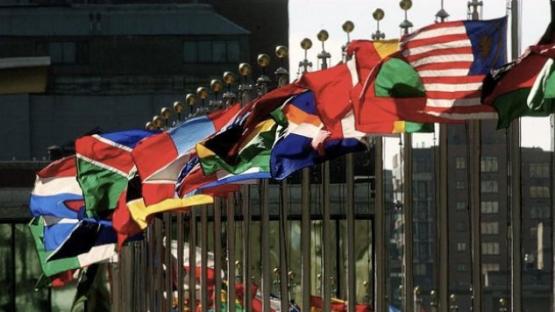The need for a Special Rapporteur on the Right to Privacy at the UN

The past year has been an important one for the right to privacy. Privacy was Dictionary.com’s word of the year in 2013. Human Rights Watch called it “The Right Whose Time Has Come (again).”
However, privacy has not received enough attention in the international bodies that are meant to ensure our human rights are protected: there has been no major statement on privacy by a United Nations human rights body since 1988.
One crucial step to protect privacy, and address how the technical and societal landscape surrounding this right has changed in the last three decades, would be for the United Nations Human Rights Council to establish a Special Rapporteur on the Right to Privacy. Privacy International this week is in Geneva at the 26th Session of the Human Rights Council asking diplomats and civil society representatives there to take up this call and make sure that this fundamental right gets the attention and protection it deserves.
Why this matters
Special Rapporteurs are individuals who examine particular human rights issues or countries and report back to the Human Rights Council. However, no existing Special Rapporteur has an explicit mandate covering the right to privacy.
This needs to change. The right to privacy is enshrined in multiple international treaties, but for the right to be upheld in practice, human rights bodies must champion its importance internationally. A Special Rapporteur would help do this.
There is a pressing need to better articulate the content of the right to privacy as part of international human rights law and produce guides on its interpretation, particularly as modern technologies are enabling communications surveillance – and consequent interferences with the right – on an unprecedented scale.
A Special Rapporteur on the Right to Privacy would undertake the following activities:
- Producing thematic studies to develop understandings of the right to privacy in discrete settings, with technical and expert advice to assist States in comprehending the complex implications of technological innovations for modern understandings of privacy;
- Providing independent recommendations to the Human Rights Council on matters of privacy, which have been long neglected;
- Networking and sharing information with UN bodies and other partners in order to establish a common understanding of the right that is grounded in international human rights principles;
- Acting as a respected interlocutor for privacy matters in international media; and
- Providing a forum for engagement on privacy issues for civil society representatives and others, including victims of violations of the right
Protecting privacy is a cross-cutting issue that impacts on fields as diverse as internet governance, communications surveillance and border management. A Special Rapporteur would play a critical role in developing common understandings and furthering a considered and substantive interpretation of the right across a variety of settings. There is strong demand for such a role, as international bodies are increasingly grappling with the right’s implications in a digital world.
Within the UN system, a Special Rapporteur would provide much-needed intellectual leadership on privacy. The UN High Commissioner for Human Rights will be presenting a report to the Human Rights Council in September, on the protection and promotion of the right to privacy in the context of domestic and extraterritorial surveillance and/or interception of digital communications and the collection of personal data. This report will be an excellent start; the creation of a Special Rapporteur is a logical next step.
Guidance is needed
Other international bodies are already seeking the Human Rights Council’s guidance in this area. The Multi-stakeholder Statement of São Paulo, produced by the recent internet governance NETMundial conference, for example, emphasised, “Collection and processing of personal data by state and non-state actors should be conducted in accordance with international human rights law. More dialogue is needed on this topic at the international level using forums like the Human Rights Council and IGF (Internet Governance Forum) aiming to develop a common understanding on all the related aspects.”
Discussions around privacy are increasingly taking place in a variety of international and domestic settings, especially since the Snowden revelations of mass surveillance by Five Eyes intelligence agencies. There is an opportunity for a Special Rapporteur to shape these discussions, ensure that privacy is given appropriate weight in the policy responses that are being developed, and give voice to concerns that mass surveillance could become embedded in the practice of repressive regimes.